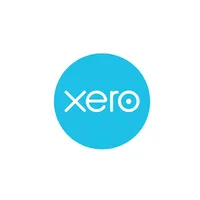Sponsored by Xero
Accounting software for SMB: 10 things you should know about them
Finding the right accounting software for your business can be tricky

Small businesses need to select the right accounting software for their situation because it determines their financial accuracy and operational efficiency.
The right software choice enables enterprises to handle bookkeeping tasks efficiently, support expansion and regulatory compliance, and improve decision-making.
The numerous options make it difficult to determine which features to prioritize when selecting accounting software.
The following list presents 10 vital elements to evaluate when choosing accounting software for small business operations.
Elevate your business with Xero's cloud-based accounting. Manage finances securely online with real-time insights, easy invoicing, and seamless collaboration—accessible anytime, anywhere. Unlike outdated manual methods, cloud accounting is fast, cost-effective, and secure, keeping your data safe even in the event of an emergency.
TechRadar Pro Approved Sponsored Offer
1. Scalability: planning for growth
The ability of accounting software to adapt to business expansion represents a fundamental requirement for selection.
A small business at its current stage operates with a limited number of clients who generate basic financial transactions. Business expansion typically increases complexity by adding more customers and staff, introducing new revenue sources, and increasing financial transaction volumes.
The ability of software to scale properly prevents users from having to change platforms repeatedly, as such changes incur both economic costs and operational interruptions.
The software should offer different feature levels through modular add-ons, enabling you to access advanced capabilities as your business requirements change.
The software needs to support multiple user accounts with varying levels of permission, allowing your finance team to grow without operational delays or security threats. The investment in scalable accounting software will yield long-term benefits by minimizing the need for ongoing data migration and employee training.
2. Strong security features: protecting sensitive data
The most critical business information that accounting software stores includes financial records, payroll data, banking details, and customer payment information.
The protection of sensitive business information requires absolute priority because it is constantly under threat from cyberattacks, data breaches, and fraudulent activities.
Review the security protocols the vendor implements during your evaluation. The system protects data through encryption during transfer and storage, multi-factor authentication for access control, and financial data permission systems for authorized users. The system requires automated backup processes and disaster recovery systems to prevent data loss.
The software must comply with industry data protection standards, and the vendor must maintain active development of security features to combat new threats.
Your financial data needs to remain intact because it serves as the foundation for operational trust and regulatory compliance.
3. Integration with existing business tools
The digital world requires accounting software to operate as an independent system because it must connect with essential business applications, including CRM systems, payroll management, inventory management, POS systems, and ecommerce platforms.

The integration of systems through best practices eliminates redundant work and reduces errors, enabling efficient workflows by enabling instant data exchange between connected systems.
The automatic transfer of POS sales data to invoicing and tax processing systems via direct integration reduces manual work and speeds up financial reporting.
Review your current technology infrastructure before software selection to verify system compatibility and ease of integration.
4. User experience and ease of use
The usability of accounting software becomes essential because most small business staff members lack accounting expertise.
The software interface needs to be simple and user-friendly so users can perform tasks efficiently without requiring extensive training.
The platform should present clear dashboards and simple workflows, together with built-in tutorial assistance and in-app guidance for users.
The software system's simplicity reduces training costs while protecting your financial data from errors caused by user mistakes. The system promotes team-wide adoption by making bookkeeping easier, resulting in more accurate and complete financial records.
The software should provide mobile access. Business owners who spend time away from their desktops can benefit from mobile financial management capabilities that include viewing reports, sending invoices, and recording receipts.

5. Comprehensive feature set tailored to business needs
Accounting software includes multiple features, although most businesses need only specific functionality. Choose software that delivers efficient solutions for your business requirements after determining your fundamental operational needs.
The following list includes standard essential features that most businesses require:
- The system must include features for creating invoices, tracking payments and expenses, managing payroll, reconciling bank statements, generating financial reports, performing analytics, calculating taxes, and providing filing support.
- Businesses operating in specific industries may require inventory management, project cost tracking, and job costing features. Create a list of essential features for your operations to help you select the most suitable accounting software.
- Businesses should avoid spending money on unnecessary features they will not use, as well as on software that fails to deliver essential functions. A software system that meets your business needs leads to better operational performance and stronger financial management.
6. Customization options for flexible use
Every business operates with unique operational methods, which makes customization features extremely important.
Software customization through template adjustments, workflow, dashboard, and report customization enables better alignment with your business operations.
The system allows users to customize data presentation, set specific account codes, and establish automated rules for transaction repetition and notification systems.
The ability to customize software to your needs increases productivity and reduces the need for workarounds and manual modifications.
7. Reliable customer support
Accounting software implementation and usage will inevitably produce technical problems and questions that require immediate assistance. Business operations remain uninterrupted when you have access to fast and knowledgeable customer support.
The vendor provides support via phone, email, and live chat. The support service operates during your business operating hours. The platform offers extensive online documentation, which includes FAQs, tutorials, and community forums for users.
User reviews of customer service quality offer essential insights into how well support teams respond to questions and provide helpful assistance.
Select vendors who maintain a strong track record of reliable ongoing support because all software systems need occasional help with complex functions or technical problems.
8. Pricing structure and total cost of ownership
The pricing models for accounting software differ significantly. The software industry uses two primary pricing methods: subscription plans with monthly or yearly payments, and one-time license fees. The system charges users extra for premium features, user account additions, and technical assistance.

The initial cost of software acquisition should not be the only factor you consider, as it accounts for only a portion of total ownership costs.
Factor in:
- The costs of setup and onboarding services, software updates and upgrades, user expansion fees, technical support fees, integration and third-party application fees, and training and consulting fees.
- The software needs to remain affordable for your business operations now and during future growth. The use of clear pricing models with no surprise charges helps organizations create more accurate financial plans.
9. Compliance and reporting capabilities
Accounting software needs to help businesses comply with all applicable accounting standards and tax regulations in their geographic area.
The software should produce precise financial reports, which include profit and loss statements, balance sheets, cash flow statements, and tax reports.
The software should perform automatic tax calculations, handle different tax rates when needed, and generate data for tax preparation and audit purposes.
The availability of simple reporting tools helps management teams make better decisions through financial data, which supports their growth initiatives.
The vendor needs to update their system regularly to incorporate new tax regulations and accounting standards, as non-compliance poses a risk.
10. Reviews, recommendations, and trial periods
Research customer reviews and expert recommendations about your shortlisted software before making a purchase decision.
The evaluation process, through customer reviews, will reveal both known problems and benefits that might surprise you.
Your accountant or financial advisor can offer expert advice on software compatibility tailored to your business needs. Free trials and demo versions from vendors enable you to test software functionality with your business data and workflows.
Using the software with your actual business data and workflows during a trial period will show you how it functions better than reading specifications or advertisements.
Final words
Selecting the right accounting software is a strategic investment that affects every aspect of small-business financial management, from streamlining day-to-day operations to scaling for future growth.
By prioritizing scalability, security, integration, user experience, and tailored features, small businesses can avoid costly transitions and ensure the chosen platform enhances financial accuracy and regulatory compliance.
Choosing accounting software is more than comparing features; it is about aligning technology capabilities with unique business needs and planning for continuous improvement.
Businesses that engage with vendors offering ongoing support, flexible customization, and robust training resources position themselves for smooth implementation and sustained operational efficiency.
Evaluating genuine customer reviews, leveraging trial periods, and involving key internal stakeholders help ensure that the selected system genuinely fits the business's current activities and future ambitions.
A thoughtful, criteria-driven selection process will empower small businesses to confidently manage their finances, quickly adapt to industry changes, and focus more on strategic growth rather than administrative hurdles.
Taking the time to assess these ten vital elements transforms accounting software from a basic utility into a catalyst for better business decisions and ongoing success.
Sign up to the TechRadar Pro newsletter to get all the top news, opinion, features and guidance your business needs to succeed!
Bryan M. Wolfe is a staff writer at TechRadar, iMore, and wherever Future can use him. Though his passion is Apple-based products, he doesn't have a problem using Windows and Android. Bryan's a single father of a 15-year-old daughter and a puppy, Isabelle. Thanks for reading!

